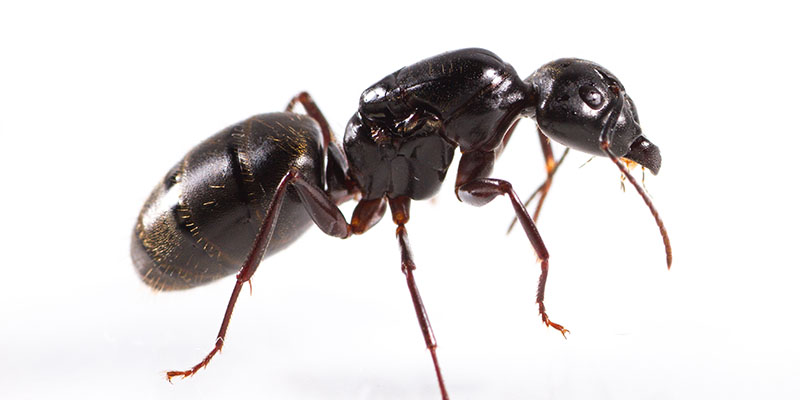Carpenter ants are large, black ants that are found in many parts of the world. They are known for their ability to excavate wood, which can lead to structural damage in homes and other buildings. Carpenter ants are also called bull ants because they can deliver a painful sting. However, they are not as aggressive as some other types of ants, and they are not considered to be a major health risk.
Characteristics of Carpenter Ants
Carpenter ants are large ants, measuring up to 1 inch in length. They are black or dark brown in color, and they have a shiny appearance. Carpenter ants have large mandibles, which they use to excavate wood.
Carpenter ants are social insects, and they live in colonies. Colonies can range in size from a few dozen ants to several thousand ants. Carpenter ants typically nest in moist, decaying wood. However, they can also nest in other materials, such as drywall, insulation, and even plastic.
Why Are Carpenter Ants Also Called Bull Ants?
Carpenter ants are sometimes called bull ants because they can deliver a painful sting. However, they are not as aggressive as some other types of ants, and they are not considered to be a major health risk. The sting of a carpenter ant is similar to the sting of a honeybee, and it can cause pain, swelling, and redness. In rare cases, the sting can cause an allergic reaction.
Health Risks of Carpenter Ants
Carpenter ants pose a few health risks to humans and domestic pets. The most serious risk is an allergic reaction to the ant’s sting. This can cause symptoms such as hives, swelling, and difficulty breathing. In rare cases, an allergic reaction to a carpenter ant sting can be fatal.
In addition to the risk of an allergic reaction, carpenter ants can also carry bacteria and other pathogens. These can be transferred to humans and pets through contact with the ants or their nests. If you are bitten by a carpenter ant, it is important to wash the area with soap and water and to seek medical attention if you experience any symptoms of an allergic reaction.
Pets that come into contact with carpenter ants may also be at risk of an allergic reaction. In addition, the ants can contaminate food or water that pets ingest, which can lead to illness. If you suspect that your pet has been exposed to carpenter ants, it is important to monitor them for any signs of illness and to seek veterinary attention if necessary.
Possible Damage Carpenter Ants Can Do to a Home
Carpenter ants are large, black ants that are known for their ability to burrow deep into wood. They can cause significant damage to homes and other buildings, and they are a major nuisance. They excavate wood to create tunnels and nesting chambers. This can weaken the structural integrity of a building, and it can also lead to water damage if the wood is not properly sealed.
Also, carpenter ants can chew through wood, and they can damage furniture, flooring, and other wooden objects. In addition to structural damage, carpenter ants can also contaminate food. They have been known to carry bacteria and other pathogens that can cause food poisoning.
How to Detect Carpenter Ants in a Household
There are a few signs that you may have a carpenter ant infestation. These include seeing live ants or their discarded wings, finding sawdust or frass, hearing a rustling sound coming from inside walls or woodwork, and also, noticing a musty odor. Should you notice any of these signs, it’s important to take action to get rid of the ants.
How to Prevent Carpenter Ants from Entering Your Home
There are a few things you can do to prevent carpenter ants from entering your home. These include:
- Seal up any cracks or gaps around windows and doors
- Keep your home clean and free of clutter
- Store firewood away from your home
- Avoid leaving food out overnight
- Have your home inspected by a pest control professional
By following these tips, you can help to keep carpenter ants out of your home.
Summing Up All the Information
Carpenter ants are not a major health risk, but they can cause significant damage to homes and other buildings. By being aware of the signs of an infestation and taking steps to prevent carpenter ants from entering your home, you can help to protect your property. Also, if you suspect your home had become a host to carpenter ants, you can have a local pest control service assess and take care of the problem.

